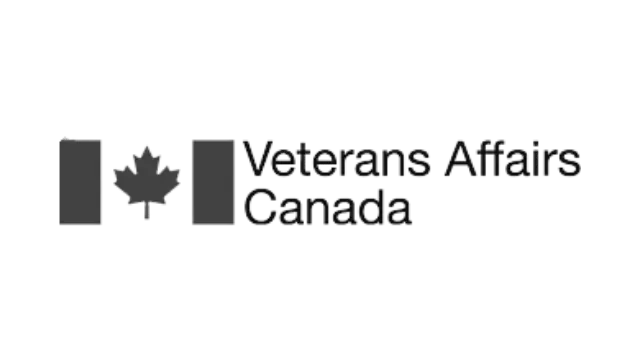Grigore Counselling & Associates
Move. Breathe. Heal.
Feeling disconnected from your body or overwhelmed by stress?
Trauma-Informed Yoga helps you restore safety, presence, and inner peace—at your own pace.
Trauma-Informed Yoga
Trauma can affect both the mind and body, making traditional yoga challenging or harmful for trauma survivors. Trauma-informed yoga (TIY) offers a tailored approach that incorporates self-regulation strategies to safely increase body awareness, address nervous system dysregulation, and foster a sense of physical and emotional safety.
Enhance body awareness in a secure and controlled manner, fostering a sense of physical, emotional, and psychological safety
Help manage nervous system dysregulation, dissociation, and feelings of disconnection from the body or environment, which are common responses to trauma.
How Does TI-Yoga Differ from Regular Yoga?
Yoga aims to activate the parasympathetic nervous system’s “rest-and-digest” response, countering the “fight, flight, or freeze” state common in trauma survivors. However, certain mainstream yoga practices—such as prolonged poses, unconsented physical assists, specific breathwork, overheated environments, exclusive language, or intense hip and spine movements—can inadvertently trigger the fight-or-flight response, overwhelming trauma survivors.
Trauma-informed yoga prioritizes safety, predictability, and emotional support, offering a space where participants can address signs of distress or dissociation without pressure. This practice focuses on fostering a sense of embodiment, grounding, and connection to the mind and body in a secure and non-triggering environment.
Easy
Safe
Consentual
Supportive
TI-Yoga Can Help With...
Anxiety &
Depression
Childhood Abuse
Survivors
Sexual Assault
Survivors
Military &
First Responders
Trauma & PTSD
Intergenerational
& Racial Trauma
Caregivers &
Healthcare Staff
Chronic Illness
& Pain
Suicidal Ideation
& High-Risk
Work Stress
Daily Stress
ADHD &
Neurodivergence
Substance Abuse
& Behaviours
Anger Management
Body Dysmorphia
& Self-Image
TI-Yoga Fast Facts
Our Expert TI-Yoga Therapist...

Dr. Cindi Saj
PhD, MSW, RSW
**$200 Per Hour** | Children | Adolescents | Teens | Adults
EMDR | IFS | CBT | DBT | Hypnosis | Yoga | SFBT
ADHD | Anxiety | Trauma | Spirituality |
Sleep...
English






FAQ
Most frequent questions and answers
What is Trauma-Informed Yoga typically used for?
Trauma-informed yoga (TI-Yoga) is typically used to support individuals who have experienced trauma, helping them manage symptoms such as anxiety, PTSD, stress, depression, and emotional dysregulation. It provides a safe, compassionate environment that addresses physical and emotional challenges, promotes healing, and fosters a sense of safety, self-awareness, and resilience.
What are the advantages of TI-Yoga?
The advantages of trauma-informed yoga include:
- Safety and Empowerment: Creating a supportive environment where individuals feel safe to explore and heal from trauma.
- Emotional Regulation: Helping individuals manage emotions and reduce symptoms of anxiety, PTSD, and depression.
- Body Awareness: Encouraging greater awareness of bodily sensations and promoting a healthier relationship with the body.
- Resilience Building: Supporting individuals in building emotional resilience and coping strategies.
- Holistic Healing: Addressing both physical and psychological aspects of trauma in a comprehensive way.
- Reduction in Triggers: Offering personalized practices that minimize triggers and foster healing.
- Community and Connection: Providing a space for connection and shared understanding with others who have experienced similar challenges.
Are sessions virtual or in-person?
Most of our sessions are virtual, however some of our Associates may elect to offer in-person sessions, so it’s important to check!
While offering virtual sessions nearly exclusively may seem unorthodox, during the COVID-19 pandemic lock-down, the healthcare industry discovered virtual sessions were superior in many ways to in-person sessions.
Some reasons for this are: allowing clients to meet in the comfort of their home or office, allowed clients to reach a new level of authenticity by not needing to get “dressed up for the world;” and not needing to account for travel time was greatly appreciated by most of our clients who have busy schedules. Furthermore, virtual sessions require the therapist to attune much more deeply to their client, and having a therapist who is even more deeply attuned to their client, can only benefit treatment.
What sets TI-Yoga apart from traditional yoga?
Trauma-informed or trauma-sensitive yoga is distinct from traditional or regular yoga because it is specifically designed to address the needs of individuals who have experienced trauma. Key differences include:
- Safety and Sensitivity: Emphasis on creating a safe and supportive environment to avoid triggering trauma responses.
- Adaptability: Poses and practices are modified to accommodate individual comfort levels and physical boundaries.
- Body Awareness: Focuses on enhancing body awareness in a way that promotes healing without forcing or overwhelming.
- Emotional Regulation: Incorporates techniques that help manage emotional dysregulation and emotional processing.
- Trauma-Informed Language: Uses language that is respectful and non-triggering, promoting healing rather than re-traumatization.
- Holistic Approach: Balances physical movement with mindfulness and self-regulation practices tailored to trauma survivors.
How will I know therapy works for me?
You’ll know therapy is working when you notice positive changes, such as improved coping skills, better relationships, reduced symptoms, and increased self-awareness. Additionally, if you feel heard, supported, and confident in applying what you’ve learned outside of sessions, therapy is likely making a difference.
Are there side effects of therapy?
While therapy itself doesn’t typically have physical side effects, emotional discomfort can arise as you work through challenging issues. However, most people experience relief, growth, and improved well-being over time.
Can I be on medication while undergoing TI-Yoga?
Yes, individuals can take medication while practicing trauma-sensitive yoga. In fact, yoga can complement traditional therapies and medications by providing additional tools for emotional regulation, stress management, and body awareness. It is important for individuals to communicate with their healthcare providers to ensure that yoga practices align with their overall treatment plan and medication regimen.
How do I choose what type of therapy is best for me?
Some individuals have been referred for a specific form of treatment by their doctor or other health professional, however, many individuals who begin working with us aren’t sure which type of treatment they need.
That’s OK! Most of our therapists are skilled in multiple therapeutic modalities, and they will select the most appropriate approach to ensure you receive the best treatment to reach your goals as fast as possible.
We encourage you to discuss your goals and ask any questions you have during your free consultation!
Will my insurance cover any costs?
Most likely. It’s important to check with your insurance carrier to determine if they cover “Registered Clinical Counselling,” “Clinical Counselling,” “Counselling,” “Mental Health Counselling,” “Psychotherapy,” “Psychological Services.”
Some carriers only cover services from Psychologists, Psychiatrists, or Social Workers. Others accept Registered Clinical Counsellors (which is our designation).
We have conveniently included all insurance carriers where our services are accepted (although others who have not been included may still provide reimbursement if they cover Registered Clinical Counsellors).
If you determine your carrier will accept our services in full or in part, you are required to pay in full for our services, and then seek reimbursement from your insurance carrier.
What is the difference between a Psychiatrist, Psychologist, Psychotherapist, Clinical Counsellor, Social Worker?
It’s confusing isn’t it? Let’s bring some clarity here.
Psychiatrists are medical doctors (MD’s) with a focus on mental health. They can formally diagnose and prescribe medications.
Psychologists are “doctors of psychology” but are not medical doctors. They have a PhD. They are allowed to diagnose mental health conditions, conduct psychological assessments, but cannot prescribe medications.
Psychotherapists and Clinical Counsellors are interchangeable designations where each province will have certain protected rights to use a particular designation. For example, in British Columbia, we are called either Registered Clinical Counsellors or Certified Clinical Counsellors; in Ontario the term used is Registered Psychotherapist. Counsellors/Psychotherapists (whichever term is used) generally have a MA level degree, are able to conduct psychological /counselling services but are not able to formally diagnose, assess, or prescribe medication.
Social Workers are able to conduct counselling sessions and are governed by the College of Social Workers. They may also belong to other professional associations and conduct therapy/counselling/psychotherapy within those guidelines.
Social workers most often have a MA level degree, and like Clinical Counsellors/Psychotherapists, cannot formally diagnose, assess, or prescribe medication.
Hope that helps!
Anything you want to ask us?
While we do our best to adhere to strict confidentiality, we cannot guarantee complete privacy when messaging us over the internet. Please only share what you feel comfortable sharing in this format.
